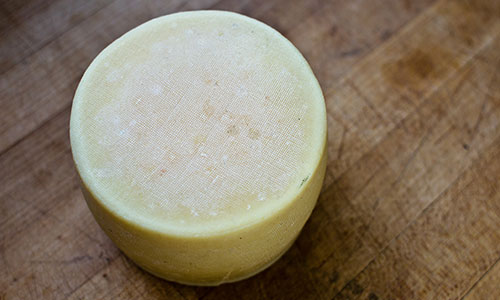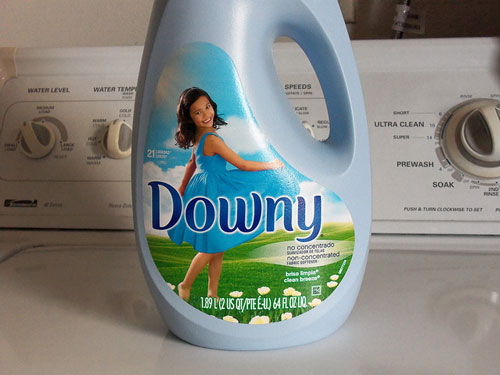Secretly Made With Meat
Products you probably use all the time, from fabric softeners to condoms, use unexpected animal byproducts. But not Guinness anymore, fortunately.
Editor’s note: In honor of Guinness’ recent move to full veganism, I’m reviving an old post of mine and getting it up to date. It wasn’t an easy task with all those fish bladders. "Wait, fish bladders?" Keep reading …
“All brewers want to use the latest and the best technology, we’ve been researching for a decade about how we can reduce the amount lost in the filtration process so we were excited that this might work. It’s great though that it means people who haven’t had a pint in a while can have one now.”
— Stephen Kilcullen, a master brewer for Guinness, telling The Times of London why the company is only now moving away from isinglass, the fish bladder long used in its iconic Irish beers. The announcement that the company was moving away from using isinglass in 2015 mostly had the effect of shocking lazy vegetarians concerned about things such as ethics. Even when Guinness was still using it, the amount was minute. “The isinglass is retained in the floor of the vat but it is possible that minute quantities might be carried over into the beer,” the company explained in 2013. You can read more about Isinglass over at Smithsonian magazine.

(Brian Boucheron/Flickr)
If you're trying to stay vegetarian, you may want to skip the Parmesan cheese
Many vegetarians don't take the full plunge towards veganism because they feel like they'd miss cheese too much. Problem is, some kinds of cheese happen to be made with a certain part of the cow that can't be acquired without killing said cow.
The material, rennet, is procured from the lining of a cow's fourth stomach, and is often used as a way to encourage cheese to curdle. Thanks to the declining cost of artificial or plant-based ways of doing the same thing, major food-makers have slowly moved away from relying so heavily on a material that must be acquired by killing a cow—and the list is growing.
However, there are a few kinds of cheese out there that require rennet to reach their full potential. One of those cheeses is Parmesan, perhaps one of the most popular kinds of hard-grated cheese out there.
Like a number of other traditional foods originally made in Europe, it has a protected designation of origin, meaning that it can only technically be called Parmesan if it's made in a certain part of Italy, using a traditional production process. And sorry to tell you, eggplant Parmesan fans, rennet is part of that traditional production process.
Even without keeping the vegetarians in mind, This can create unusual complications for those that have diets that vary from the norm. For example, that traditional production process makes it difficult to make a kosher variation on Parmesan, because it has to go through two separate processes to ensure that it follows traditional standards as well as religious ones. In fact, it was so complicated that a company was only able to release the first kosher variation on Parmesan—complete with Star of David on the cheese block—in 2015.
But if you're vegetarian and hankering for some of the hard stuff, make sure you're looking for "vegetarian Parmesan" or Parmesan-style cheese on store shelves. You're not getting the real thing, but you'll at least be able to live with yourself the next day.

You'll never soften fabrics the same way again. (Daniel Oines/Flickr)
Five kinds of non-food products you'll be surprised to learn aren't vegan
- Paintball capsules: Generally, the outer layers of paintballs are made of gelatin, which is a form of collagen generally derived from animal bones. (If you like Jell-O, geltabs, or marshmallows, you're also a gelatin user.) Sorry, you won't be able to play paintball, guys.
- Tattoo ink: Traditionally, tattoo ink has been made of bone char, and animal products are often used in maintaining that tattoo. However, there are some vegan-friendly alternatives out there, so you can still get an ugly tattoo if you would so like.
- Guitars: This isn't an across-the-board thing, but many guitars, particularly acoustic ones, use small parts that come from animals. The nut and saddle of the guitar, two parts that hold the strings in place, are often made from bone, often not limited to one kind of animal. Hey, it could be worse; vintage instruments were often made using ivory, which is way worse from an ethical standpoint than normal bone.
- Converse All-Stars: Despite the fact that the shoes are famously made of canvas and rubber, Converse has traditionally shied away from calling its footwear "vegan." The reason? Simply put, there's a chance that the glue they use may be of animal origin, but they can't be sure. Sounds reassuring, doesn't it? The issue Chucks and their animal-derived glue has long been a matter of online debate. (The debate hasn't stopped PETA from recommending Chucks to people.)
- Fabric softener: If you're putting your clothes in Downy, you're slathering your fabrics in animal fat. No, really. Wired reported in 2008 that dihydrogenated tallow dimethyl ammonium chloride, a material derived from the rendered fat of cattle, sheep, and horses, is keeping your clothes silky smooth. Sorry, America.
“It wasn't about the quality of the condom. Many were absolute crap. But people were buying them with the eye. They loved the packaging, because it fit the lifestyle they were trying to lead. And I think that's exactly what this fair trade, biodegradable, green, vegan condom sales thing is all about. It's just marketing.”
— Author Aine Collier, offering a skeptical take to NPR about the relatively recent trend of vegan and fair trade condoms—which is something that's an actual trend, apparently. Collier, who wrote a book about the history of condoms (which we're assuming was fascinating to research), argues that the eco-friendly twist on recent condom trends aren't as revolutionary as they sound. Now contrast that hot take to the hot take offered by the makers of GLYDE, a vegan condom.
Here's the thing: When it comes to manufacturing food or other products, we're never going to get to 100 percent vegetarian or vegan. We're already too far down the rabbit hole—a rabbit hole probably filled with many rabbits that have been turned into random chemicals for human consumption.
In that overly depressing context I just put it in, it's hard to see the big deal about Guinness getting rid of a couple of fish bladders—that is, until you consider the plight of folks like Paul Vogel, a founder of the Vegan Society of Ireland. He hasn’t been able to drink a pint of Guinness for nearly two decades due to his vegan status. He recently got another chance, after he became one of the first people to drink a vegan pint of Guinness.
“It’s nice. I remember what it tasted like because it’s so distinctive. It’s creamy but has that bite,” Vogel told The Times of London. (He admitted, however, that he’s sticking with wine.)
It's kind of nice to think that a product that doesn't need to have any meat byproducts in it has figured out a way to go vegetarian. It's not like keeping the fish bladder in there is going to make the drink any more iconic. As any fan of Guinness knows, it's the iconic glasses and the health benefits that do that.
It'll be nice to have another drinking buddy at the pub. Next round's on me!
:format(jpeg)/2017/05/tedium050217.gif)
/2017/05/tedium050217.gif)

/uploads/ernie_crop.jpg)